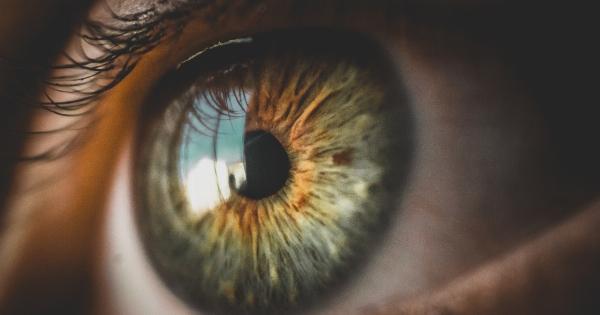Coffee has always been a topic of debate amongst health experts due to its caffeine content.
While some believe that excessive caffeine intake can increase anxiety and other health issues, recent studies have shown that coffee might have positive implications for ocular health. Specifically, coffee intake has been linked to a reduced risk of developing age-related macular degeneration (AMD), which is a leading cause of blindness in the elderly population.
Overview of Age-Related Macular Degeneration (AMD)
AMD is a degenerative eye disease that causes damage to the macula, the central part of the retina responsible for our detailed vision. There are two types of AMD – dry and wet, with 90% experiencing dry AMD.
It is estimated that over 170 million people worldwide have AMD, and this number is expected to grow as the population ages.
AMD is mainly caused due to oxidative stress and inflammation, which can damage the collagen and elastin in the retinal tissues. This is why antioxidants are essential for the treatment of AMD.
How Coffee Affects AMD Risk
Recent studies have shown that regular coffee intake could contribute to a reduced risk of developing AMD.
Coffee is rich in phytochemicals such as chlorogenic acids, tocopherols, and caffeine, which all act as antioxidants and can help to reduce oxidative stress in the retina. Additionally, caffeine has anti-inflammatory properties, which can also improve ocular health.
In a study conducted by the European Eye Study, it was found that regular coffee intake reduced the risk of AMD by 7%.
Another study in the United States found that people who drank 3 or more cups of coffee per day had a 65% reduced risk of developing AMD compared to those who drank less than 1 cup per day.
Coffee and Diabetic Retinopathy
Diabetic retinopathy is a complication of diabetes that causes damage to the blood vessels in the retina and can lead to vision loss. Studies suggest that coffee intake may also have a positive impact on diabetic retinopathy.
In a study conducted in Japan, it was found that consuming at least 1 cup of coffee per day reduced the risk of developing diabetic retinopathy by 54%.
Another study in the United States found that participants who drank 4 or more cups of coffee per day had a 35% reduced risk of developing diabetic retinopathy compared to those who didn’t drink coffee.
Coffee and Glaucoma
Glaucoma is another eye condition that affects millions of people worldwide and is characterized by damage to the optic nerve.
While coffee may not have a direct effect on glaucoma, some studies have suggested that caffeine consumption might help in reducing the intraocular pressure (IOP) and thereby slowing down the progression of the disease.
A study conducted in Korea found that Korean participants who drank 3 or more cups of coffee per day had a lower IOP compared to those who didn’t drink coffee. However, the same benefits were not found in white participants in the study.
It is unclear why this difference in outcomes occurred.
Coffee and Cataracts
Cataracts are another vision-related problem that affects many people worldwide, and it is the leading cause of blindness globally. Cataracts are caused due to the oxidation of the lens, which causes cloudiness in the eyesight.
Studies have shown that coffee consumption can help prevent the risk of developing cataracts.
In a study conducted in the United States, it was found that participants who consumed coffee regularly had a significantly lower risk of developing cataracts compared to those who didn’t drink coffee.
The caveat was that the coffee had to be consumed black. Participants who added sugar or milk to their coffee didn’t experience the same benefit.
Caffeine Intake and Eye Health
While coffee intake may have positive implications for ocular health, it is important to note that excessive caffeine intake can lead to side effects.
This includes increased anxiety, dehydration, and hindering the absorption of essential vitamins such as iron and calcium. Additionally, caffeine intake can aggravate open-angle glaucoma, which is the most common type of glaucoma.
Conclusion
Coffee consumption has long been a topic of debate amongst health experts due to its caffeine content.
However, recent studies have shown that regular coffee intake can have positive implications for ocular health, specifically in reducing the risk of developing age-related macular degeneration, cataracts, and diabetic retinopathy.
While the exact mechanism behind the benefits of coffee on ocular health is not yet clear, it is believed that the phytochemicals and caffeine present in coffee act as antioxidants and anti-inflammatory agents and help reduce oxidative stress in the retina. It is important to note that while coffee intake might have benefits, excessive caffeine intake can lead to side effects and aggravate certain eye diseases such as open-angle glaucoma.

























